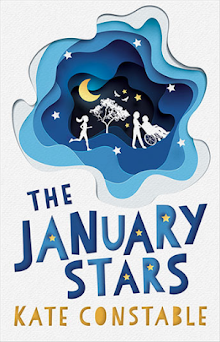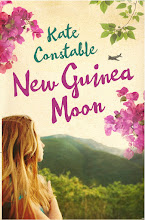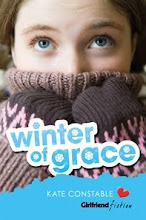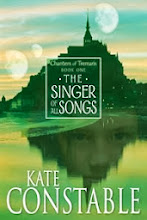Anything To Avoid Actual, You Know, Writing
This might all sound crazy, but bear with me.
For a few years now I've been a fan of
Randy Ingermanson's snowflake method -- it's a good one to use when you have a mass of material swirling in your head and on the page, but the structure of your story is stubbornly refusing to emerge. A lot of meat, but no bones, if you will.
I've now started playing with my own variation on this technique and so far it's proving quite useful. One big advantage (at least for me) is that at every stage, right up until the end, I can tell myself that I'm just playing, planning, roughing stuff out -- and by the time I get to the final stage, I can swing almost seamlessly into polishing, tweaking, editing and revising. Because I really love the planning stage just before I start writing, and the revising stage, just after I finish writing, but the actual writing itself kind of freaks me out.
So. I begin with my old mate Randy's single sentence summary. Try to sum up your whole novel in 20 words or less. When I was working on
Crow Country, I came up with:
An ancient stone circle and talking crows lead a lonely girl to old crimes, new friends and a sense of belonging.
Which is 21 words, but hey, it doesn't have to be perfect. This is a great way of cutting to the very heart of what your story is about, a bit like a tag-line for the back cover. Basically from here, it's all about doubling, and doubling, and doubling.
The next step is to expand that single sentence into a paragraph -- about three or four sentences long. One line to describe the set-up, and a sentence for each major plot development. This usually takes about a hundred words. Something like:
Sadie, newly arrived in town, finds a mysterious stone circle that enables her to understand the language of the crows. The crows take her back in time to witness a tragedy in which her family played a central role. Meanwhile, Sadie and her mother Ellie struggle to fit into the new town, where Ellie and her boyfriend have a difficult history of their own. Only by attempting to right the wrongs of the past can Sadie find a sense of belonging.
Next I'll expand this paragraph into a longer summary of 250 words, fleshing out a bit more detail of the plot, but still keeping it to broad brushstrokes. And then I'll double
that into a page-long summary of about 500 words. Now the secondary characters and subplots get a mention.
Then I'll double that again into a more detailed 1000 word synopsis, and then again, into 2000 words. By the time I get to the 2000 word summary, I can break it up into 'chapter chunks' of about 100 words each, describing what will happen in each stage of the story. Now I can get a sense of what needs filling out, what incidents might not carry the weight of a chapter, and what elements might need to be broken up into smaller pieces. This outline is usually jotted down very roughly in point form -- because I'm only playing, right?
7. Card party at A & T's; conversation between J and T about love and smoking; J feels simultaneously very grown up and out of her depth; T encouraging her to flirt with DS who she finds repellent; there is another power cut and they sit in candlelight playing cards; J overhears a few of the men (including A -- perhaps jokingly?) planning to go out to fetch more beer and pick up a local girl; she reports this to T who reacts hysterically, rushes after them, brings J to do the driving (R taught J to drive last year)*
Something like that - a kind of scene by scene breakdown. Now I can take each those rough chapter summaries and double
them to 250 words or so, which might include snatches of dialogue, and a bit of shorthand description. And by the time I've done that, I've got a seven or eight thousand word
thing which is looking pretty close to a very, very rough first draft. And all without actually writing anything!!
My next step is to make a rough draft of each chapter -- say, 1000 words -- still not the real thing, still not actually writing -- and then expand each of those out again. And okay, I have to admit, that is pretty much a draft. But a rough one! A draft that will need tweaking, and polishing, and adjustment, and revision -- but that's not actual writing, is it? That's
re-writing. A completely different, and much less arduous task, because most of the hard work is already done. See how brilliant this is?? And it's never too scary, because you're always building on something you've already done.
All I need now is a snappy name. The Pizza Dough Method -- because it keeps doubling in size? The Lego Technique -- because it's about breaking everything down to basics, then building it up again?
I'll work on it. Anything to avoid actual, you know, writing.
* In case you hadn't realised, this is not from
Crow Country!
















